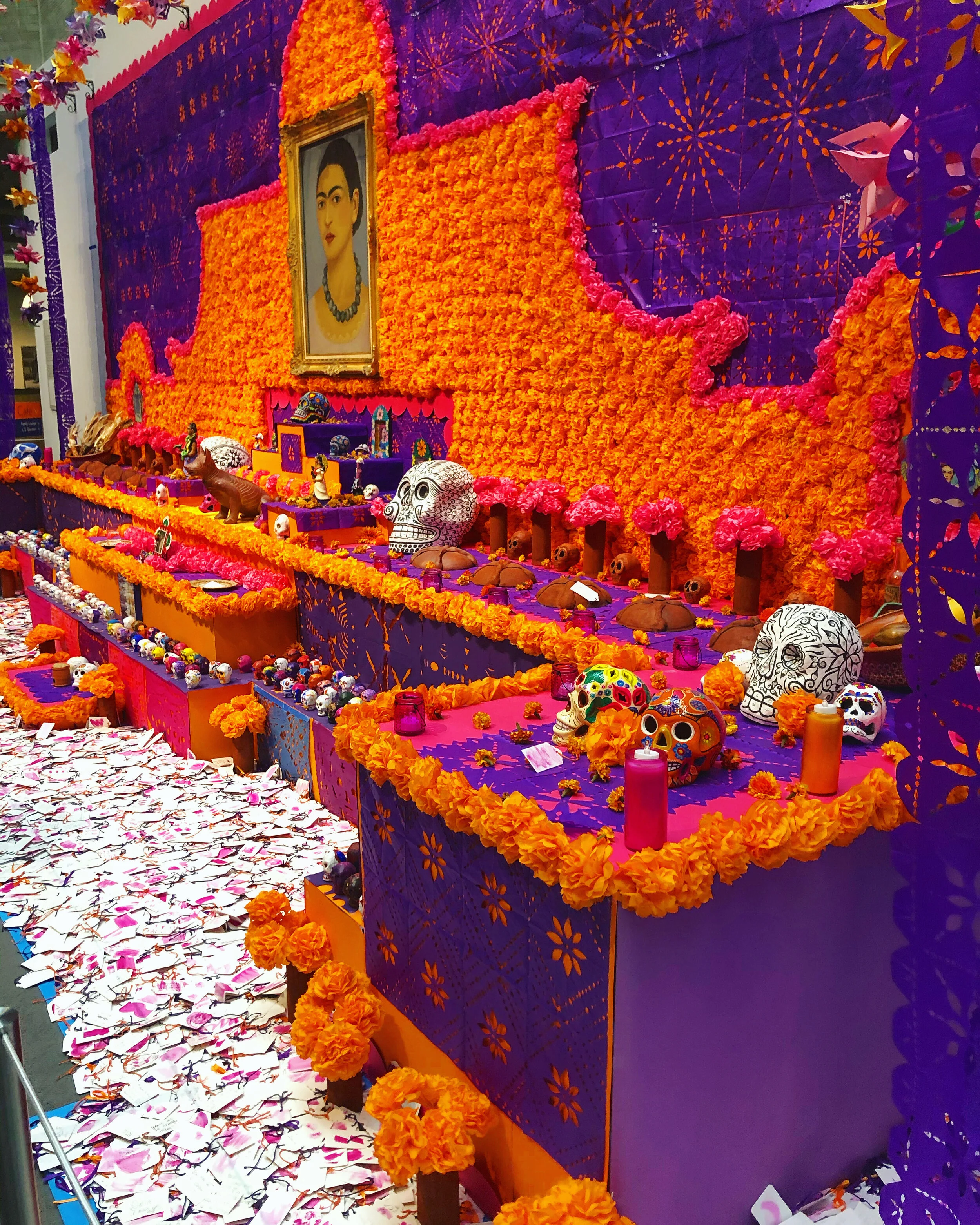Good Grief

This subject is one I knew I wanted to cover, but I thought it was too heavy to introduce off-the-gate of my return. Seems like the universe had a different plan when the death of Ruth Bader Ginsburg slammed into all of us last Friday.
Grief, I would assume, has likely been studied since human hearts have felt the void of a lost loved one, so nothing I have to add to the conversation will be revelatory. But grief is also deeply personal and simultaneously universal, so sharing our thoughts about the ups and downs of the process, even when jumbled, feels like the best way to deal. Sure, we all even know the 7 stages, but doesn’t that feel a little more clinical than human? Especially when grief affects us so wholly: mentally, emotionally, physically, spiritually, and more.
It probably feels like the last 9 months have been one long grieving process, compounded by the fact it seems every day there is more to grieve. Another death, another disaster, another day of losing the-way-things-were. Shit. It’s something. One long, unpredictable, exhausting… something.
It feels like I’ve been personally grieving in one way or another since nearly a year ago when my lovely Grandma — 96 strong — died. It was one of the best ways to lose someone, which I know sounds fucked, but there are a lot of people right now who cannot be with their loved one(s) as they leave this plane, so it feels like a privilege in many ways. My whole family was able to be all the way there all the way to the end, something that’s hard but ultimately the right thing. It’s also, in my experience, easier to grieve when there’s an absolute end point; no loose ends means less questions. All that said, there is still grief to be had, no matter the nature of the loss. Not just for my family and I with Grandma, but for every one when it comes to loss both small and large.
I like to wade knee deep in the sludge of that grief. It’s a double-edged sword because it’s sad and long and difficult. The trudge is made up of all the feels for… well, however long it takes. In the vein of this, I told my fellow grief-trudging friend the other day it’s better we’re feeling the grief of this nutso time rather than the alternative: feeling nothing (or just being an asshole.) But maybe that’s not exactly right, at least not for everyone. Because I do WHOLLY understand this massive trauma and subsequent grief are very, very, very new to many people. (Both fortunately and unfortunately, heavy boots are vintage for me, so my toolbox is more stacked.) And who honestly knows between not feeling or feeling which is right or wrong. Like most things, both are probably a little of each.
With this tragic new normal—and even with losses from the before-times—it should be stated for posterity whatever helps you grieve without hurting yourself or others is just fine. There’s no one way to get through all these stages of sadness and anger and denial, etc. My way ain’t gonna be the way for all to most folks. But I do hope you hear me when I say this, even if you don’t agree right now: grief is ultimately good. It means whatever you lost meant something; it mattered. Feeling loss is tough, but feeling it means you’re processing.
One of the ways I’ve learned to better grieve these last few years is getting a better understanding of the Mexican culture surrounding death, specifically during Día de Muertos. Quick rundown: for 3 days, family and friends gather to honor the dead through memories, as well as reunite with the dead while they briefly return to this realm via offerings on altars, or ofrendas. This tradition brings the idea of color and celebration to grief. And there’s something so necessary feeling about that after it being so ingrained by American society to label, and maybe even believe, grief is solely a dark time devoid of any possibility of happiness. But seriously, what better way to honor and feel through our losses than by coming together in celebration to carry on the memory of what was before!? Our country could learn more than a thing or two, but finding a culturally positive way to process grief should at least have a spot in the Top 3, especially right now.
The ofrenda at the Frida Kahlo exhibit at the NC Museum of Art in 2019. 📷 photo by: rachel noel
So ugly cry if you need to. Smile after you get done sobbing if you want; it doesn’t negate your sadness. Put up a picture of someone you lost in a spot you can see it every day instead of hiding it away, leaving it lonely in your bedside drawer. Tell stories of all the things you used to do before the pandemic with a fondness instead of a sadness; they may come back, they may not — you can’t control it either way. Lay in bed all day or run outside for an hour. Connect physically with the people you’re riding The Q with, and connect ANY way with those you have to miss from a distance (for now). Breathe. Know the more you look this thing in the face, the faster you can 7-step it through the grief. Remember: my Grandma, and RBG, and your lost ones, and our lives before will all live on through us, so what choice to we have but to keep living? And death, loss, GRIEF… they’re all a part of life. Is that so bad?
I think it’s good. Pretty, pretty, pretty good.
